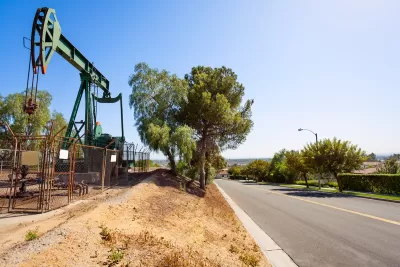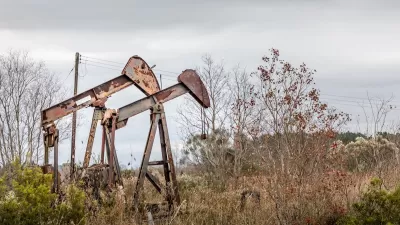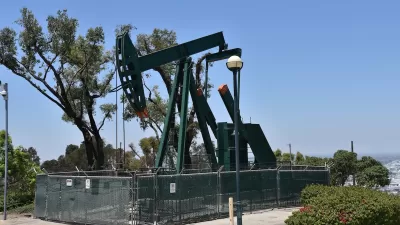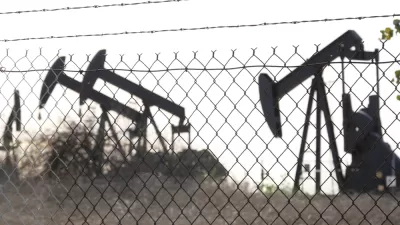Legislators are considering extending the deadline for new oil well safety regulations by up to 54 months, sparking controversy over whether the delay benefits the oil industry at the expense of public health.

The California Legislature is deliberating a proposal by the Newsom administration to delay by up to 54 months the implementation of new safety regulations for oil wells near residential areas and schools. Initially set to be enforced by January 2027, the amendments would push this deadline to July 2031. Enacted in 2022, the law mandates that oil companies monitor for leaks and manage environmental impacts around existing wells, aiming to protect communities, particularly those in low-income and minority areas.
As reported by Julie Cart, this proposed extension has faced criticism from legislators and public health advocates who argue that it benefits the oil industry at the expense of public safety. They highlight the health risks associated with oil operations, including respiratory issues and other serious conditions, particularly for those living near wells. The delay would extend the timeline for critical safety measures, such as leak detection, which could further endanger communities already exposed to harmful pollutants.
The delay proposal follows a campaign by the oil industry to challenge the original law, which included a costly ballot measure that was later withdrawn. Advocates and some legislators argue that the additional time requested by state agencies for implementation reflects an effort to accommodate industry needs rather than addressing the urgent health concerns of affected residents. The debate continues as the legislative session nears its end, with ongoing discussions about balancing industry regulations and public health protections.
FULL STORY: California legislators debate giving oil companies until 2031 to monitor wells for leaks

Planetizen Federal Action Tracker
A weekly monitor of how Trump’s orders and actions are impacting planners and planning in America.

Chicago’s Ghost Rails
Just beneath the surface of the modern city lie the remnants of its expansive early 20th-century streetcar system.

San Antonio and Austin are Fusing Into one Massive Megaregion
The region spanning the two central Texas cities is growing fast, posing challenges for local infrastructure and water supplies.

Since Zion's Shuttles Went Electric “The Smog is Gone”
Visitors to Zion National Park can enjoy the canyon via the nation’s first fully electric park shuttle system.

Trump Distributing DOT Safety Funds at 1/10 Rate of Biden
Funds for Safe Streets and other transportation safety and equity programs are being held up by administrative reviews and conflicts with the Trump administration’s priorities.

German Cities Subsidize Taxis for Women Amid Wave of Violence
Free or low-cost taxi rides can help women navigate cities more safely, but critics say the programs don't address the root causes of violence against women.
Urban Design for Planners 1: Software Tools
This six-course series explores essential urban design concepts using open source software and equips planners with the tools they need to participate fully in the urban design process.
Planning for Universal Design
Learn the tools for implementing Universal Design in planning regulations.
planning NEXT
Appalachian Highlands Housing Partners
Mpact (founded as Rail~Volution)
City of Camden Redevelopment Agency
City of Astoria
City of Portland
City of Laramie





























